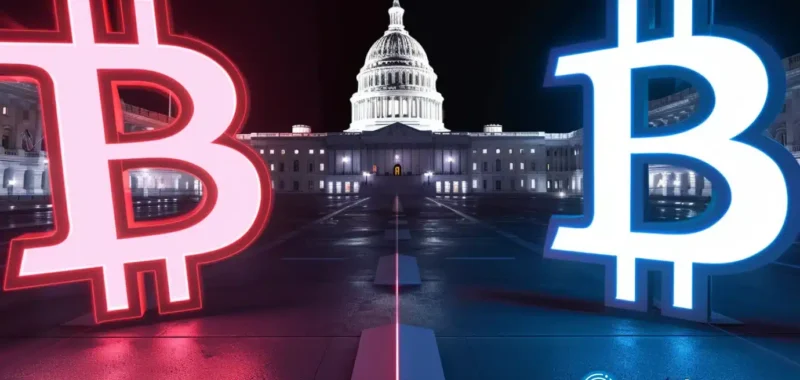Fairshake, a prominent crypto-focused super PAC, plans to invest $25 million in TV ad campaigns to support 18 House of Representatives candidates from both parties.
According to Fairshake spokesman Josh Vlasto and Fox Business reporter Eleanor Terrett, this effort highlights a growing bipartisan consensus on the importance of crypto and blockchain in the future economy.
The PAC will support nine candidates from both parties with different political opinions.
Fairshake’s goals
Fairshake supports candidates committed to advancing crypto-friendly legislation and fostering innovation in the U.S. Their recent efforts include backing House Financial Services Chair Patrick McHenry, Rep. Dusty Johnson, and Rep. Josh Gottheimer (D-N.J.), all key figures in promoting crypto legislation.
The PAC is backed by major crypto firms like Coinbase, Ripple, and Andreessen Horowitz. Recently, Fairshake has helped spend over $37 million on primary race ads, contributing to notable victories, including Rep. John Curtis’s win in Utah. The organization continues to influence elections with significant contributions and strategic ad placements.
Fairshake PAC and its affiliates recently won three state primaries after losing in Arizona. They supported Wesley Bell, Bob Onder, and Shri Thanedar in Missouri and Michigan, while Emily Randall led in Washington’s 6th District.
Fairshake, along with Defend American Jobs PAC and Protect Progress PAC, spent $4 million supporting pro-crypto candidates and opposing anti-crypto incumbents like Cori Bush.
What is a PAC?
A PAC, short for Political Action Committee, is a group that collects and utilizes funds to support and/or oppose political candidates.
PACs typically follow specific donation restrictions and reporting regulations and operate within strict contribution limits from both individuals and entities. They can also contribute directly to candidates’ campaigns.
On the other hand, super PACs have the ability to raise and spend unlimited sums of money but are not allowed to coordinate directly with candidates or political parties.

